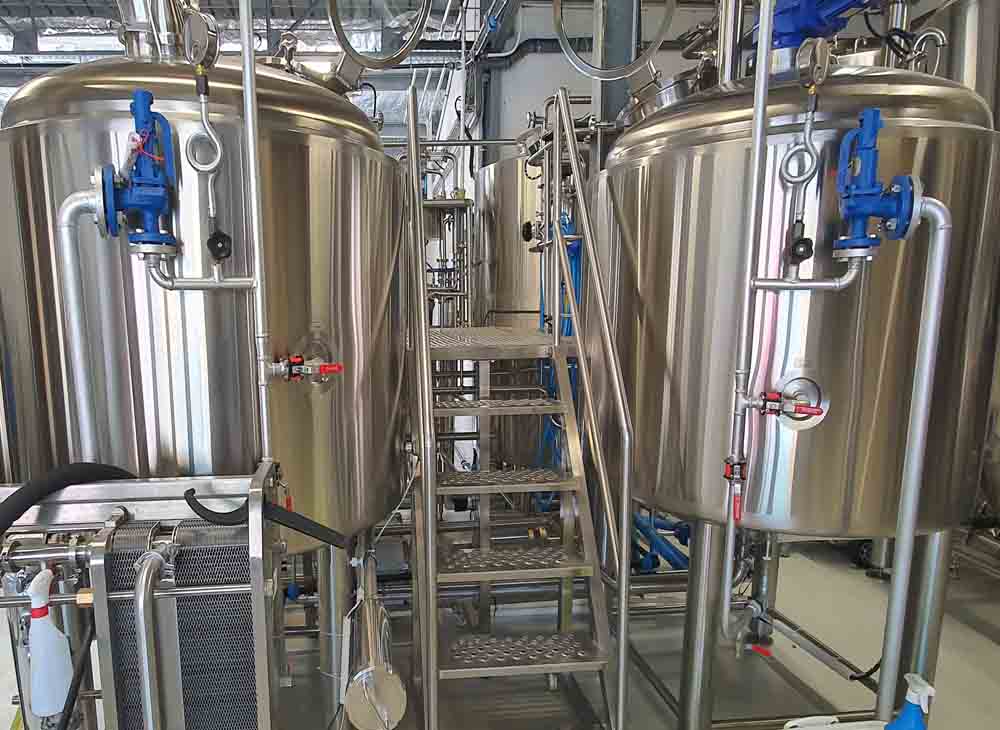How to do lagering in a brewery with brite beer tank?
- Aug 07, 2021
- 85
- tiantai
Lagering is a type of beer growth on the yeast that typically lasts for numerous weeks, if not months, at or near-freezing temperature levels, after fermentation as well as prior to purification and/or product packaging of the beer. Lagering is used practically solely for bottom-fermented beer designs-- for this reason the name" brew" for these beers-- and also just hardly ever for top-fermented beer designs, that is, ales. Throughout lagering, beer undertakes refined, however considerable, flavor-altering biochemical procedures that are liable for the tidy as well as crisp preference we typically connect with ale beers.

Conventional lagering can last for up to 3 months, however modern-day industrial stress have actually decreased lagering times significantly at a lot of breweries. Today, lagering seldom lasts even more than a month and also 21 days is rather conventional.
The rainfall of these complicateds has a favorable impact on beer security as well as decreases healthy protein hazing in the completed item. Throughout lagering, gradually dissipating carbon dioxide scrubs numerous unpleasant-tasting substances out of the beer, consisting of sulfur dioxide, which adds green-beer tastes; dimethyl sulfide, which provides beer vegetal notes; and also hop-derived mercaptan, which is partly accountable for skunk-like off-aromas, particularly in beer subjected to light.
Lagering is a kind of beer growth on the yeast that generally lasts for numerous weeks, if not months, at or near-freezing temperature levels, after fermentation as well as prior to filtering and/or product packaging of the beer. Lagering is used practically solely for bottom-fermented beer designs-- for this reason the name" beer" for these beers-- and also just seldom for top-fermented beer designs, that is, ales. Throughout lagering, beer goes through refined, however substantial, flavor-altering biochemical procedures that are liable for the tidy as well as crisp preference we normally link with ale beers. Throughout lagering, gradually dissipating carbon dioxide scrubs numerous unpleasant-tasting substances out of the beer, consisting of sulfur dioxide, which adds green-beer tastes; dimethyl sulfide, which provides beer vegetal notes; as well as hop-derived mercaptan, which is partly liable for skunk-like off-aromas, specifically in beer subjected to light.
Edited by Nicole
Sales manager of Tiantai company
Email: [email protected]

Conventional lagering can last for up to 3 months, however modern-day industrial stress have actually decreased lagering times significantly at a lot of breweries. Today, lagering seldom lasts even more than a month and also 21 days is rather conventional.
The rainfall of these complicateds has a favorable impact on beer security as well as decreases healthy protein hazing in the completed item. Throughout lagering, gradually dissipating carbon dioxide scrubs numerous unpleasant-tasting substances out of the beer, consisting of sulfur dioxide, which adds green-beer tastes; dimethyl sulfide, which provides beer vegetal notes; and also hop-derived mercaptan, which is partly accountable for skunk-like off-aromas, particularly in beer subjected to light.
Lagering is a kind of beer growth on the yeast that generally lasts for numerous weeks, if not months, at or near-freezing temperature levels, after fermentation as well as prior to filtering and/or product packaging of the beer. Lagering is used practically solely for bottom-fermented beer designs-- for this reason the name" beer" for these beers-- and also just seldom for top-fermented beer designs, that is, ales. Throughout lagering, beer goes through refined, however substantial, flavor-altering biochemical procedures that are liable for the tidy as well as crisp preference we normally link with ale beers. Throughout lagering, gradually dissipating carbon dioxide scrubs numerous unpleasant-tasting substances out of the beer, consisting of sulfur dioxide, which adds green-beer tastes; dimethyl sulfide, which provides beer vegetal notes; as well as hop-derived mercaptan, which is partly liable for skunk-like off-aromas, specifically in beer subjected to light.
Edited by Nicole
Sales manager of Tiantai company
Email: [email protected]




